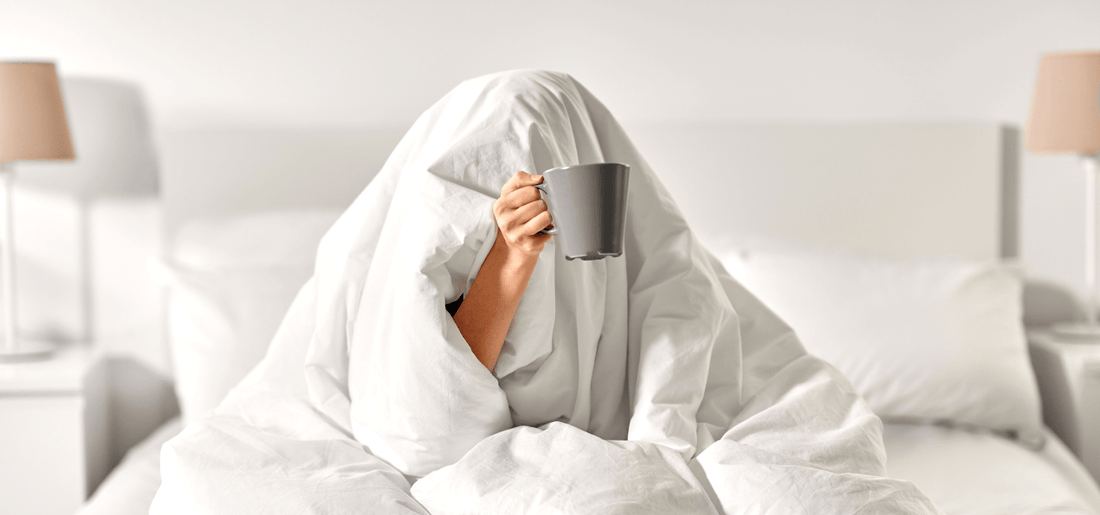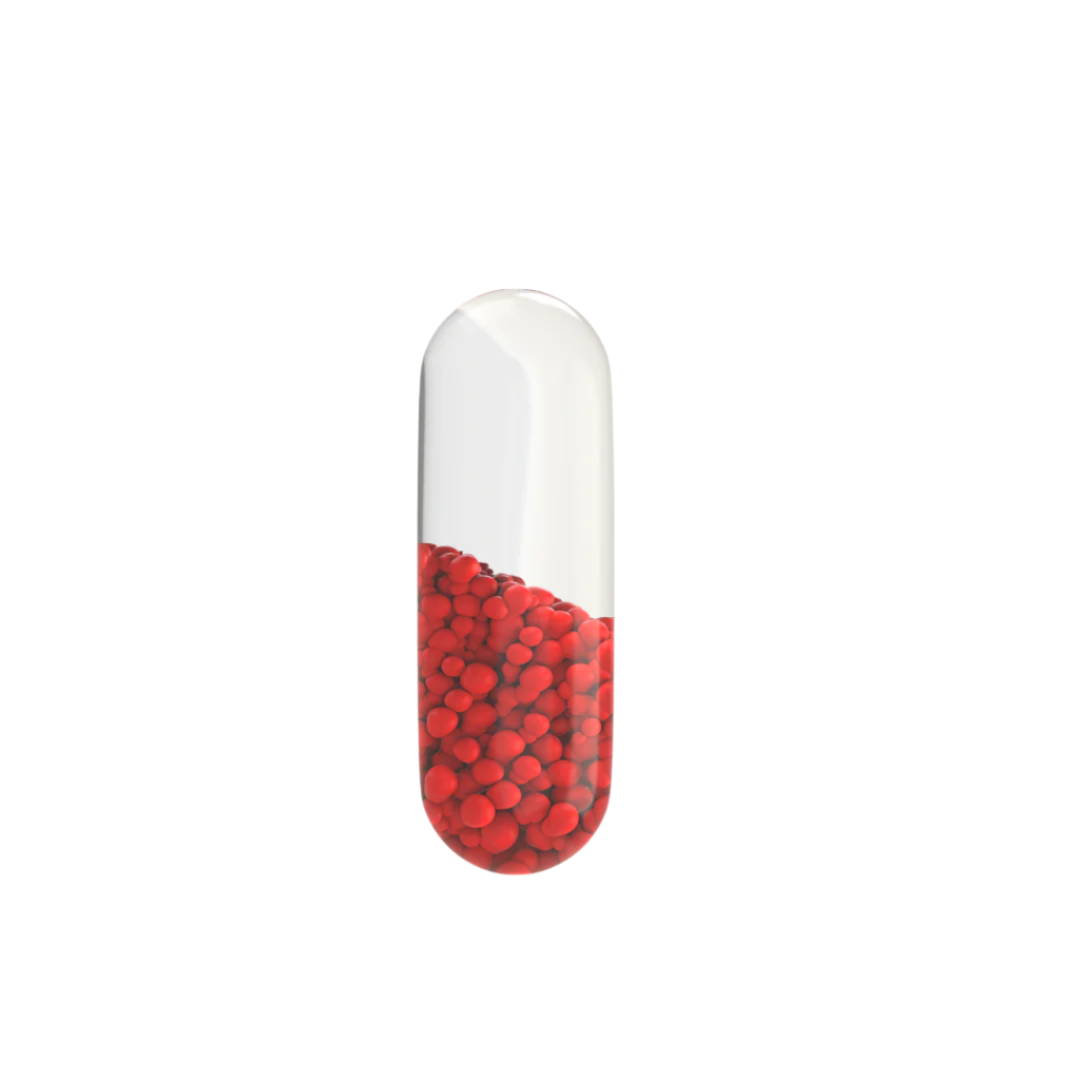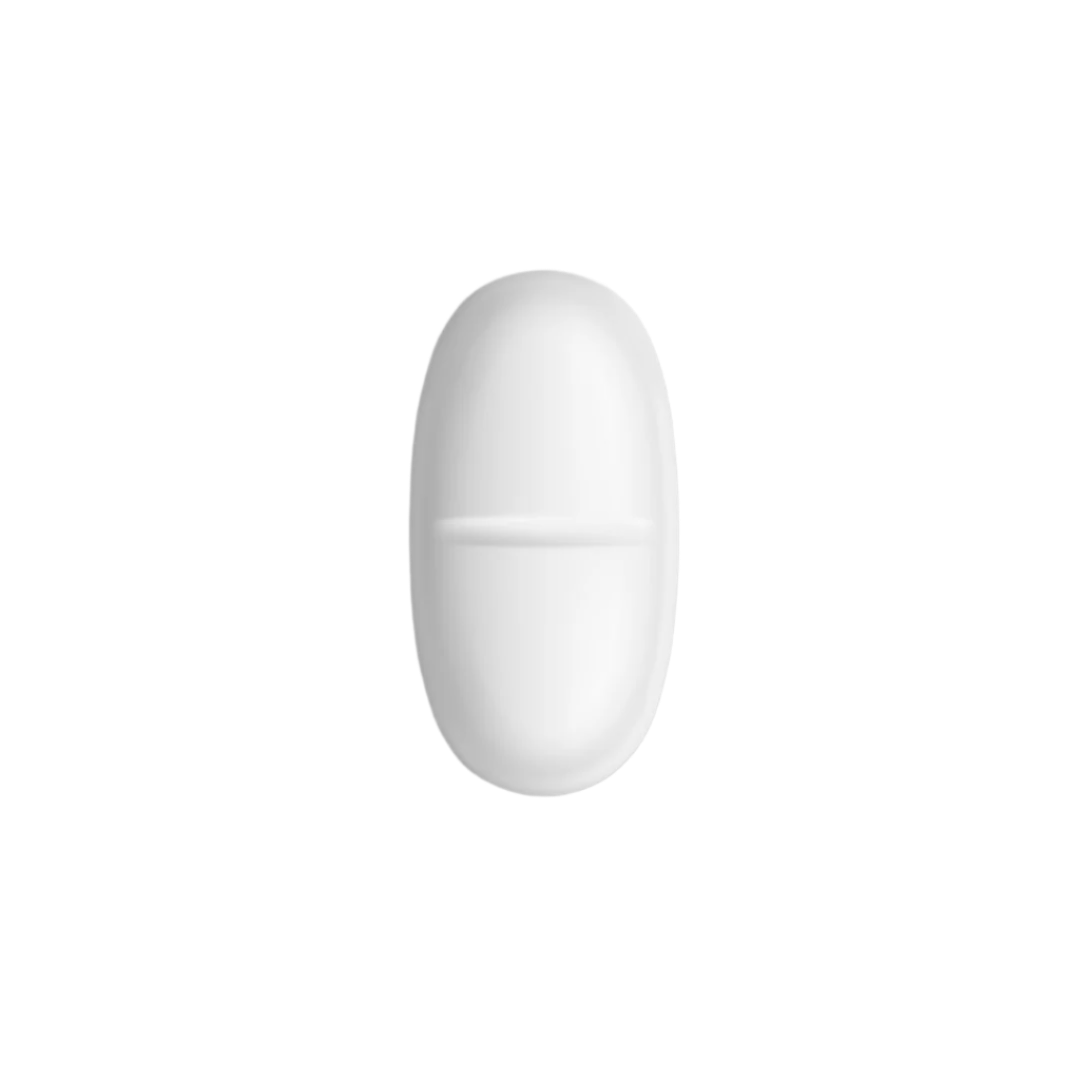How do I stop oversleeping?

While oversleeping may sound harmless, it can be a problem with serious consequences for many people. That’s why, to help you better understand this condition and what options are available to you, we explain the following in this article:
- what is oversleeping
- why is it a problem
- what causes it
- and what can you do to stop oversleeping
Read on to learn more.
What is oversleeping?
Oversleeping, also known as sleep excess1 or long sleep2, is when you sleep for over 9 hours in a 24-hour period3. This definition varies, with the third edition of the International Classification of Sleep Disorders stating “a long sleeper is an adult who typically sleeps 10 hours or more”4. For most adults, this is significantly more than is sufficient, as per the National Sleep Foundation’s findings provided below.5
|
Age group |
Recommended hours of sleep per day |
| Newborns | 14 to 17 hours |
| Infants | 12 to 15 hours |
| Toddlers | 11 to 14 hours |
| Preschoolers | 10 to 13 hours |
| School-aged children | 9 to 11 hours |
| Teenagers | 8 to 10 hours |
| Young adults and adults | 7 to 9 hours |
| Older adults | 7 to 8 hours |
As you can see, most adults tend to require 7 to 9 hours of restorative sleep6. People who oversleep go over that amount, sometimes sleeping during the day as well.
It is common knowledge that not getting enough sleep can leave you feeling sluggish, not to mention that if habitual, it can have a serious impact on your mind and body7. If you’ve ever wondered, “can oversleeping make you tired?”, the answer is yes – early research points to a connection between too much sleep and too little energy8. Excessive quantity of sleeping or EQS can also impact daily functioning9 and bring with it health issues10.
Why is oversleeping a problem?
A fair number of studies have been conducted to examine the consequences of oversleeping. Their findings point to various associated medical conditions, including:
- Diabetes and obesity: Emerging evidence points to a link between excess sleep with both type 2 diabetes and obesity11.
- Headaches: For people who suffer from migraines, ‘weekend headaches’ can be triggered by oversleeping12. Furthermore, people who oversleep during the day may disrupt their night’s sleep, which in turn can result in headaches the next morning.13
- High blood pressure (hypertension): Individuals who sleep less or more than 7 to 8 hours per day are at a greater risk of suffering from high blood pressure14.
- Mortality risk: A systematic study found that long sleep is associated with an increased mortality risk, with an increased frequency of cardiovascular disease, stroke, and coronary heart disease15.
What’s more, individuals who oversleep have been found to report a poor quality of life, as oversleeping impacts their social, professional and daily activities, as well as family relationships16.
What causes oversleeping?
There are quite a few factors that may cause oversleeping (and in turn may be aggravated by oversleeping), from sleep habits to sleep disorders. Some of these are explored below.
Disrupted sleep
When you sleep, your body cycles through two phases known as rapid eye movement or REM and non-rapid eye movement or NREM (the latter is split into three stages known as N1 which involves light sleep, N2 which involves deeper sleep, and N3 which involves the deepest non-REM sleep)17. Disruptions to the sleep cycles can result in feeling tired and groggy during the day (not to mention it can cause short-term and long-term health risks)18. As a result, to catch up on sleep debt, people may oversleep19.
Hypersomnia
Hypersomnia is a feeling of excessive daytime sleepiness, and is characterised by sleeping for long hours, napping during the day yet not feeling refreshed, and occasionally falling asleep while talking or eating.20 It may be caused by narcolepsy, sleep apnoea or other sleep disorders21, or by drinking too much alcohol and taking too many drugs.22 In some instances there is no identifiable cause or cure – in which case it is referred to as idiopathic hypersomnia.23
Narcolepsy
Narcolepsy is a rare neurological condition causing a person to experience abrupt and extreme sleepiness, to the point where they may fall asleep without notice.24 This is because the brain is unable to regulate sleep/wake patterns.25 Other symptoms include excess sleep, cataplexy (a temporary loss of muscle control), sleep paralysis and hallucinations or excessive dreaming and waking in the night.26 Like idiopathic hypersomnia, there is no cure for narcolepsy.27
Sleep Apnoea
Sleep apnoea, also known as sleep-disordered breathing, is when you stop breathing or your breathing is very shallow during sleep.28 It can be hard to tell if you have sleep apnoea if you live by yourself, as the symptoms tend to occur when you’re asleep and involve making gasping or choking sounds, frequently waking up and snoring loudly.29 Sleep apnoea can leave you feeling fatigued and sleepy the next day, among other symptoms.30
How to stop oversleeping
If you find yourself regularly sleeping over 9 hours a day (perhaps hitting the snooze button on your alarm clock every morning) yet struggle to feel rested, then you may well be suffering from oversleeping. It’s worth visiting your GP if this excess sleep is impacting your personal or professional life. And while some causes of oversleeping have no cure – like idiopathic hypersomnia and narcolepsy – you can receive medical advice and help for sleep apnoea and other sleep-related disorders.
Another important way by which you can tackle oversleeping is ensuring you consistently get better sleep – sleep that is undisturbed, deep, and restorative. To this, it’s worth focusing on the following three key elements:
- Develop a sleep schedule: Try to set yourself a realistic sleep time and wake time, and stick to them. Remember to aim for between 7 and 9 hours of sleep. Establish a night routine, such as winding down and not doing anything intense before bed, and a morning routine, such as working out and eating a large and healthy breakfast.
- Practise good sleep hygiene: There are plenty of good sleep habits to follow, and there are also plenty of “bad” habits to avoid. For example, try to reserve the bedroom for sleep and intimacy only, and try to exercise in the daytime. You should also avoid large meals before bed, and avoid using electronics in the hours preceding sleep, as blue light can negatively impact your ability to fall asleep.31
- Create a good sleep environment: As mentioned before, your bedroom should be reserved for sleep and intimacy. Furthermore, to help you relax and unwind, try to focus on the senses to create a good sleep environment. For example, where you sleep should be quiet (or you should use ear plugs to muffle any loud sounds), dark (or you should use black-out curtains or an eye mask), with the temperature neither too hot nor too cold. Invest in a comfortable mattress, and experiment with soothing scents, like lavender, that can help lull you to sleep.
The tips provided above are by no means exhaustive. Read our article on how to sleep well for more information on what you can do to improve your sleep quality.
And if you’re someone who struggles with grogginess when you wake up or during the day, then consider taking B • SYNC ON. It’s the world’s first clinically tested wake-up supplement that contains safe and all-natural ingredients (to learn more, read our FAQs). Most importantly, B • SYNC ON is proven to help people wake up with ease.
Sources
- https://www.ncbi.nlm.nih.gov/pmc/articles/PMC2362500/
- https://www.ncbi.nlm.nih.gov/pmc/articles/PMC4165901/
- https://www.ncbi.nlm.nih.gov/pmc/articles/PMC3755488/
- https://www.ncbi.nlm.nih.gov/pmc/articles/PMC4165901/
- https://www.sleephealthjournal.org/article/S2352-7218%2815%2900015-7/fulltext
- https://www.cdc.gov/sleep/about_sleep/how_much_sleep.html
- https://www.ncbi.nlm.nih.gov/pmc/articles/PMC2656292/
- https://www.health.harvard.edu/staying-healthy/are-you-tired-from-too-much-sleep
- https://www.ncbi.nlm.nih.gov/pmc/articles/PMC4142503/
- https://www.ncbi.nlm.nih.gov/pmc/articles/PMC4165901/
- https://www.sciencedirect.com/science/article/pii/S1087079217300916
- https://www.ncbi.nlm.nih.gov/pmc/articles/PMC8197397/
- https://www.webmd.com/sleep-disorders/physical-side-effects-oversleeping
- https://www.ncbi.nlm.nih.gov/pmc/articles/PMC2913764/
- https://www.sciencedirect.com/science/article/pii/S1087079217300278
- https://www.ncbi.nlm.nih.gov/pmc/articles/PMC4142503/
- https://www.ncbi.nlm.nih.gov/books/NBK526132/
- https://www.ncbi.nlm.nih.gov/pmc/articles/PMC5449130/
- https://www.webmd.com/sleep-disorders/what-is-sleep-debt
- https://www.nhs.uk/conditions/excessive-daytime-sleepiness-hypersomnia/
- https://medlineplus.gov/ency/article/000800.htm
- https://www.nhs.uk/conditions/excessive-daytime-sleepiness-hypersomnia/
- https://www.narcolepsy.org.uk/resources/idiopathic-hypersomnia
- https://medlineplus.gov/ency/article/000802.htm
- https://www.nhs.uk/conditions/narcolepsy/
- https://www.webmd.com/sleep-disorders/guide/narcolepsy
- https://www.nhs.uk/conditions/narcolepsy/
- https://medlineplus.gov/sleepapnea.html
- https://www.nhs.uk/conditions/sleep-apnoea/
- https://www.webmd.com/sleep-disorders/sleep-apnea/sleep-apnea
- https://www.webmd.com/sleep-disorders/sleep-blue-light







